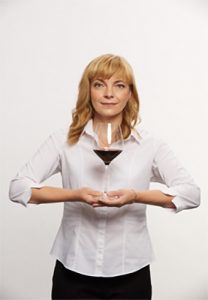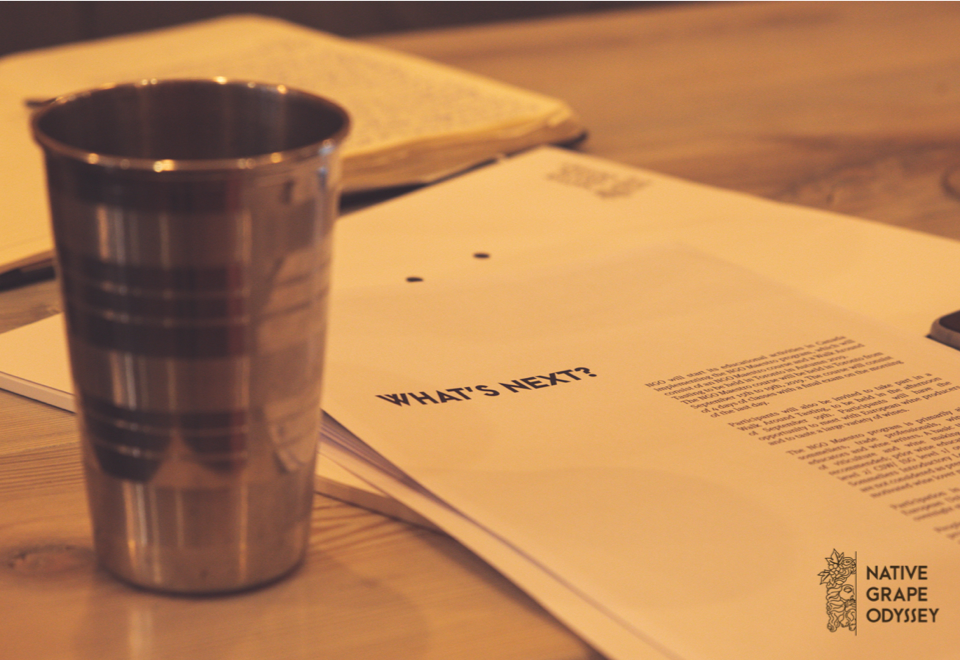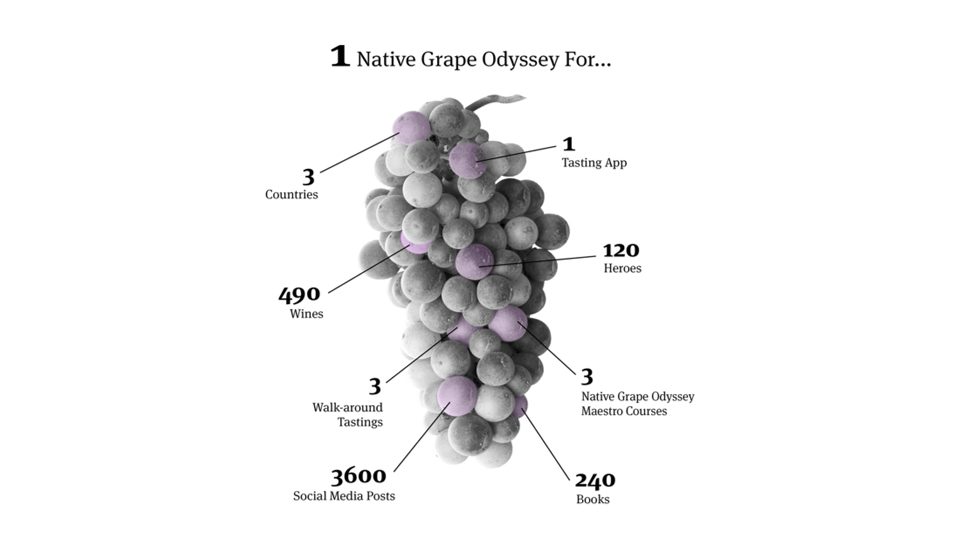
To simplify or not to simplify: should EU wine-makers simplify denominations to engage the Russian market?
May 31, 2019
NGO introduces Russia to European quality wine from Central Italy one sip at a time
June 14, 2019On June 18, 2019, at the Enotria wine school in Moscow, Native Grape Odyssey (NGO) will hold a press conference to announce the Russia edition of its educational program, taking place in autumn 2019. The event will be followed by a tasting of PDO wines, led by Veronika Denisova, Deputy Director and teacher at the school.
Since its launch in Verona, Italy last April, the Native Grape Odyssey (NGO) program has sets its sites on Russian. The Native Grape Odyssey team will arrive in Moscow on June 18 for a special press conference to announce the unveiling of the new Native Grape Odyssey Maestro course scheduled to be held in Moscow in the autumn of 2019. The NGO project, co-financed by the European Union, implements training activities focused on promoting the image of wines certified with European quality designations. Russia will be the first stop in a series of international events organized by the NGO project. There will be similar events planned for Japan and Canada in July and August 2019. The Moscow press conference will take place at Enotria, the leading wine training institute in the sector and the conference will be followed by a tasting led by Veronika Denisova, a Vinitaly International Academy Italian Wine Ambassador, and Deputy Director/Lecturer at the Enotria Wine School.

The tasting that will follow the NGO press event will be guided by Veronika Denisova, Deputy Director & Lecturer at Enotria Wine School.
The choice of location was not random: Enotria is one of the most important wine schools in the country. The institute was named after a region in Southern Italy – literally the toe of the Italian “boot.” When Southern Italy was colonized by Greek Sea-farers the area was known as Oenotria (Enotria) which bears similarity to the word oinos meaning “wine” which reflects the strong connection the area had with wine production. The institute has been active for 18 years. So far, the Enotria Wine School has trained more than 7000 graduates, or about 80% of the wine experts in Russia. Operating as a non-profit educational organization, it is the only wine school in Russia whose program has been officially approved by the Association de la Sommellerie Internationale (ASI) and the courses offered are not only aimed at professionals in the sector, but also at ordinary wine lovers. Similarly, events and tastings organized by the school are open to both B2B and B2C groups.
Veronika Denisova is pillar of this institution; she is a wine educator and journalist who is responsible for the management of the school as the Deputy Director. Denisova was chosen to lead the tasting that will follow the NGO press conference, but this was not only due to her role in the school, but also because of her extensive knowledge of European wine, in particular Italian wine. In 2015 she was awarded the title of Italian Wine Ambassador by the Vinitaly International Academy. In April 2019, she took part in NGO’s launch in Verona, Italy, which included seminars on Italian viticulture. Denisova is committed to communicating the importance of education within the wine sector, particularly in the Russian market: “Education is crucial for any country wanting to be a part of this market“.

Veronika Denisova, Deputy Director & Lecturer at Enotria Wine School, will lead the tasting that will follow the NGO press event.
NGO chose Enotria as the venue for the announcement of its project in Russia both for its important role in the national wine industry and because they shares a similar philosophy; a firm belief that education is the key to ensuring that European PDO and PGI wines are appreciated by a wide audience, furthermore, that imitations and low quality products should be avoided. NGO selected the most authoritative figures in the Russian wine sector to act as spokespeople and educators, offering them the training and support they need to understand and disseminate European quality wine knowledge. They are the most suitable people to carry out this project, not only for the respect they already enjoy in wine industry, but also for their positions in the market that give them direct contact with the consumer. Just as with a product, it is essential to limit the middlemen between producer and consumer to ensure maximum quality. NGO has determined the best way to spread knowledge is by employing a “zero kilometer” method so to speak, bringing it to foreign markets and entrusting it directly to local operators. Experienced professionals will then be able to choose the best way to communicate European quality products to their colleagues and clients.
The Native Grape Odyssey objective also includes spreading educational content online. They will bring their message to the NGO social media networks and its website, which are available in all three target countries (Canada, Russia, Japan) and languages. Creating meaningful longterm relationships within target wine sectors is key and thanks to an international staff, the communication is in fact carried out directly in the language of the target country, in order to directly and effectively communicate with the public. Likewise, organisers travel to each event location to build on these professional relationships, carrying out their educational activities directly on site.
About: Native Grape Odyssey is a project financed by the European Union and managed by Unione Italiana Vini and Zante Agricultural Cooperatives Union for the promotion of PDO and PGI European wines abroad, in particular in three countries: Japan, Canada and Russia. In order to achieve this, the Native Grape Odyssey educational program will organize wine seminars, workshops and b2b meetings both in these countries and in Verona, Italy, inviting wine experts and influencers from these countries. These events, realized in the span of three years (2019-21) aim at creating awareness about European native wines abroad, in particular Italian and Greek wines, which share a long tradition and a high standard of quality.



